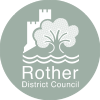What’s wrong with a good old fashioned bonfire?
- The smoke and smell can upset neighbours, stop people enjoying their garden, opening windows or hanging out washing.
- Dense smoke can affect roads causing a hazard to drivers.
You could be prosecuted.
Bonfires also cause air pollution particularly if the waste is wet and smouldering instead of dry and blazing.
The smoke will contain:
- Poisonous carbon monoxide
- Tars
- Other noxious or irritating materials
- Adding plastics will create other poisonous chemicals as well as a nasty smell
All of these things can damage people’s health. Some groups, children, asthmatics, bronchitis sufferers and people with heart problems, are particularly at risk.
Bonfire smoke adds to the general background levels of pollution. Is there really any need to damage our environment in this way?
Nobody can stop me having a bonfire!
This is not strictly true.
Although there are no bye-laws prohibiting bonfires or regulating times when they are lit, the Environmental Protection Act 1990 and the Highways (Amendment) Act 1986 apply nationally and can be used to control problems from bonfires.
The Environmental Protection Act 1990 is the main legislation dealing with statutory nuisances.
The occasional, well-controlled bonfire would not be a statutory nuisance, but, frequent, smoky fires that interfere substantially with people’s well-being, comfort or enjoyment of their property could be.
The Council can serve an abatement notice against bonfires that cause a statutory nuisance and can follow it up in the Magistrates Court, if necessary.
Individuals can use the same law to take their own action and the Police can tackle bonfires that are causing a traffic hazard.
What are the alternatives?
How about composting?
Most garden and kitchen waste can be recycled into compost. A traditional compost heap or, more effectively, a modern compost bin, will produce a valuable soil conditioner, saving money on commercial products.
Woody waste can be shredded for composting or used as a mulch. Shredders can be bought or hired quite cheaply. Take care though, for safety’s sake you must follow the manufacturers instructions when using them. They can also be noisy – don’t replace one nuisance with another!
Household waste should not be burned on a bonfire. You could always take it to your local tip. If you have a lot of rubbish to dispose of why not hire a skip. Get a quote from one of the companies in the yellow pages telephone directory.
What can I do about a smoky bonfire?
If you are troubled by persistent bonfire smoke you can do a number of things.
- Approach your neighbour and explain the problem. This usually sorts out the situation as most people will be more considerate in the future.
- If the problem continues keep a note of the dates and times of the bonfires and submit a pollution complaint to the Environmental Health Department.
They will follow up your complaint confidentially, although they may need you to give evidence if they prosecute. The initial approach will usually be an informal letter, giving advice about better ways of disposing of the rubbish and explaining about the problems from bonfires.
If this is not successful, and the bonfires continue, the investigating officer will decide if the fires are causing a statutory nuisance, if so they will take further action under the Environmental Protection Act 1990.
You could also take your own private action using the Environmental Protection Act 1990. Contact the Clerk of the Magistrates Court directly for details about how to proceed.
Contact the police if smoke from a bonfire close to a road causes a traffic hazard.

